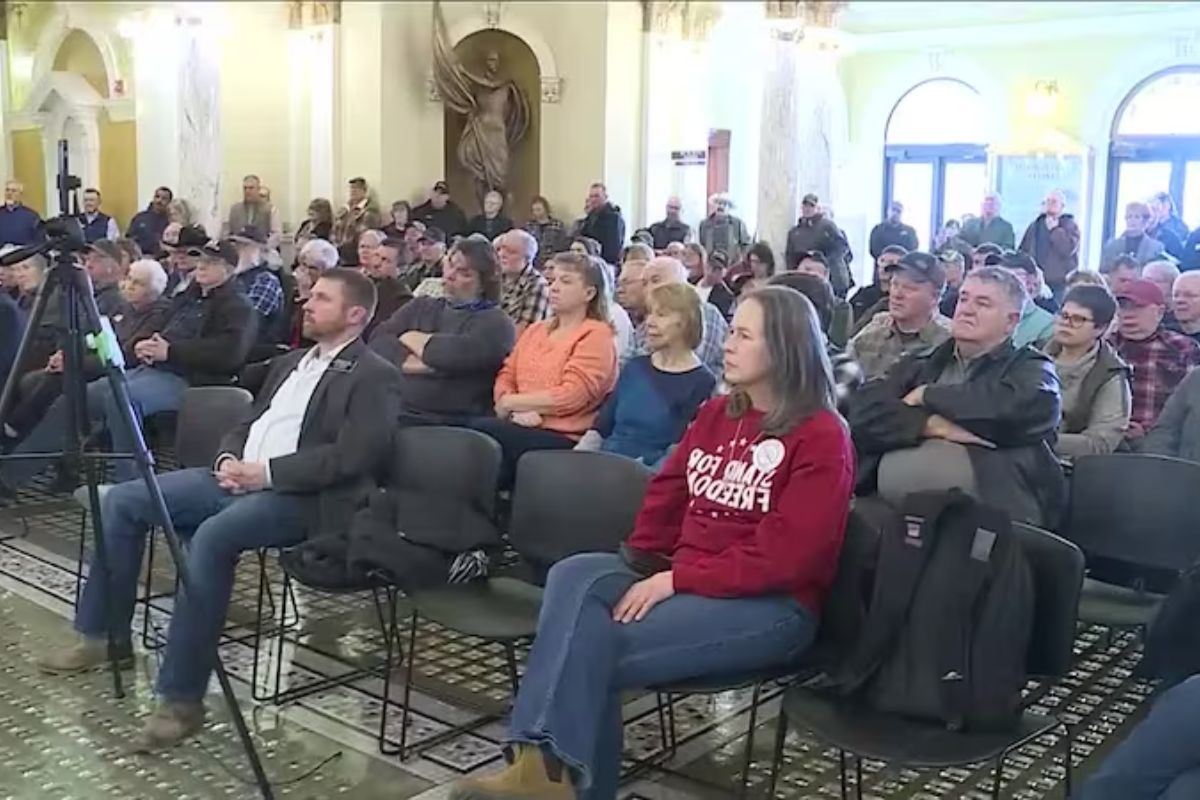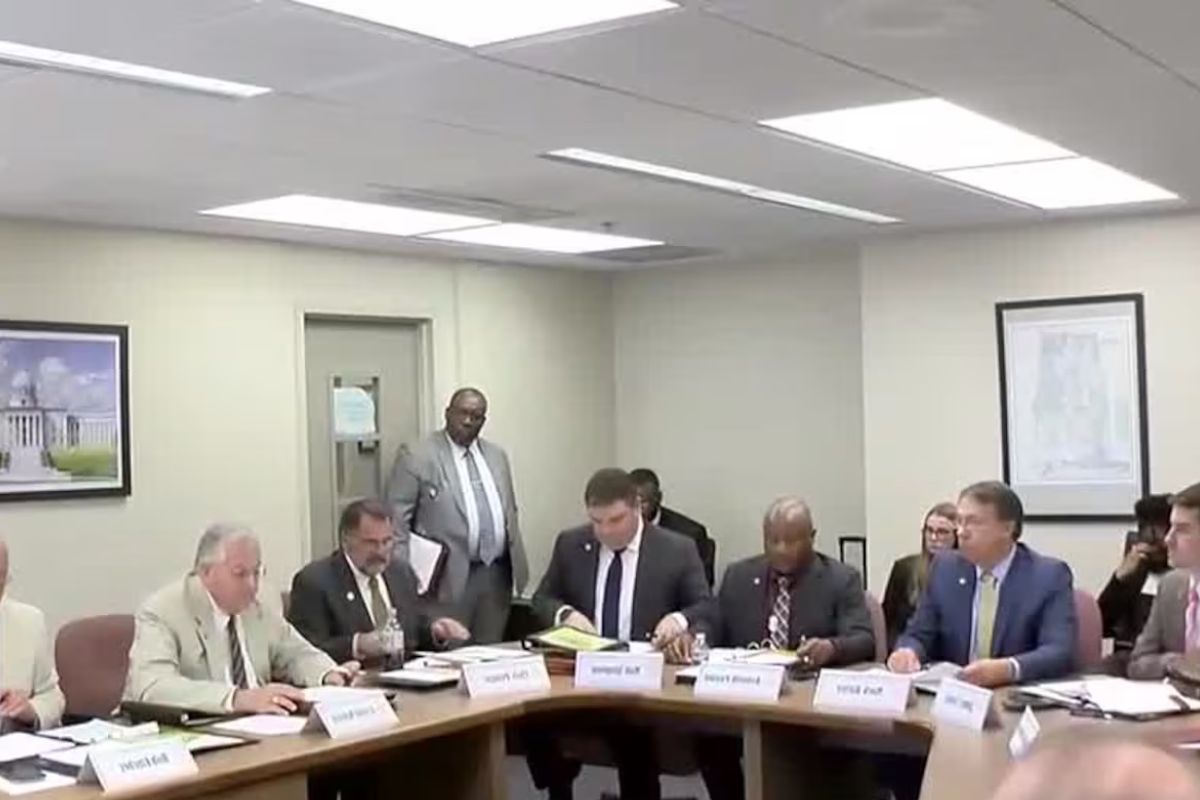Alabama Lawmakers Renew Bid to Restrict: MONTGOMERY, Ala. Alabama lawmakers are once again seeking to tighten restrictions on absentee voting, sparking a contentious debate on election integrity.
Senate Bill One, the focal point of the discussion, has drawn both proponents and opposition, each presenting their perspectives on balancing accessibility and safeguarding the democratic process.
This article will explore the key features of the proposed legislation and the Secretary of State’s viewpoint on achieving a delicate equilibrium between voter access and preserving the integrity of elections, while also addressing concerns about potential impacts and inclusivity.
Key Takeaways
- Alabama lawmakers are pushing for Senate Bill One to restrict assistance in absentee voting, with advocates claiming it is necessary to protect the integrity of the voting process and align the state’s election laws with others.
- Opposition to the bill raises concerns about potential impacts on marginalized communities, potential voter suppression, and disenfranchisement of eligible voters.
- The Secretary of State emphasizes the need to balance accessibility and integrity, prevent ballot harvesting, and promote transparency in voter assistance while also considering potential barriers to prevent disenfranchisement.
- Critics argue that the proposed restrictions could disproportionately affect diverse groups, such as college students and incarcerated individuals, and that the bill does not adequately address the needs of marginalized communities.
Alabama’s Senate Bill One Sparks Debate on Election Integrity
The introduction of Alabama’s Senate Bill One has ignited a heated debate surrounding the issue of election integrity.
Advocates argue that the bill is necessary to protect the integrity of the voting process and ensure that only eligible voters have the ability to cast their ballots. They contend that by criminalizing the act of providing or receiving assistance in absentee voting, the bill is aimed at preventing potential fraud and manipulation. Proponents of the bill also argue that it brings Alabama’s election laws in line with other states that have similar restrictions in place.
However, critics argue that the bill could disproportionately impact certain communities, particularly those with limited access to transportation or who rely on assistance to navigate the voting process. They argue that the bill could potentially suppress voter turnout and disenfranchise eligible voters.
The debate over Alabama’s Senate Bill One highlights the delicate balance between protecting election integrity and ensuring access to the voting process for all eligible citizens.

ALSO READ: Federal Judge Dismisses Mobile Baykeeper Coal Ash Lawsuit Against Alabama Power
Proponents and Opposition: Balancing Perspectives
- Advocates for Alabama’s Senate Bill One, which seeks to restrict help in absentee voting, argue that the proposed legislation is a necessary safeguard against potential fraud and manipulation in the electoral process. They believe that limiting the assistance provided during absentee voting will ensure the integrity of the election and prevent any undue influence on voters.
- On the other hand, opponents of the bill, including grassroots organizations like the SPLC Action Fund, express concerns about the potential impact on groups needing assistance with absentee voting. They argue that the legislation could disproportionately affect marginalized communities, who may rely on help to navigate the voting process.
- The bill aims to prevent potential fraud and manipulation in absentee voting.
- The debate surrounding Senate Bill One highlights the delicate balance between election integrity and ensuring equal access to the voting process.
Key Features of Senate Bill One
Alabama lawmakers are proposing new restrictions on assistance in absentee voting through Senate Bill One. This bill aims to make it a misdemeanor for individuals to provide or receive help with an absentee ballot, except for family members and election officials. If payment is involved, the offense would be elevated to a felony. The key features of Senate Bill One can be summarized in the following table:
| Feature | Description |
|---|---|
| Restriction on assistance | Individuals would be prohibited from providing or receiving help with an absentee ballot, except for family members and election officials. |
| Felony charges for payment | If payment is involved in the assistance process, the offense would be upgraded to a felony. |
| Exceptions for family members | Family members are exempted from the proposed restrictions, allowing them to assist each other with absentee voting. |
| Exceptions for election officials | Election officials are also exempted from the proposed restrictions, recognizing their role in facilitating the voting process. |
These key features of Senate Bill One reflect the lawmakers’ intention to tighten regulations surrounding assistance in absentee voting, with the aim of ensuring the integrity of the electoral process. However, critics argue that these restrictions may disproportionately affect vulnerable populations who rely on assistance to exercise their right to vote.

Secretary of State’s Perspective: Balancing Access and Integrity
Secretary of State Wes Allen weighs the trade-off between accessibility and integrity in relation to proposed restrictions on assistance in absentee voting. As the sponsor of a similar bill in 2022, Allen understands the need to protect the integrity of absentee voting, especially in a state where it is widely utilized. However, he also recognizes the importance of ensuring access to voting for all eligible citizens.
To strike a balance between these two objectives, Allen considers the following:
- Prevention of ballot harvesting: Allen emphasizes the necessity of preventing individuals from profiting by handling others’ absentee ballots, which could compromise the integrity of the election process.
- Safeguarding voter assistance: While restricting assistance, Allen aims to maintain provisions that allow eligible voters to receive necessary help in navigating the absentee voting process.
- Ensuring transparency: Allen supports measures that promote transparency in the assistance provided to absentee voters, ensuring that any help offered is lawful and in the best interest of the voter.
- Evaluating potential barriers: Allen acknowledges the need to carefully assess proposed restrictions to ensure they do not unduly burden or disenfranchise eligible voters, particularly those who rely on assistance to participate in the absentee voting process.
Concerns and Inclusivity: Addressing Potential Impacts
The proposed restrictions on assistance in absentee voting have raised concerns about potential impacts and inclusivity. Grassroots organizations like the SPLC Action Fund argue that the legislation could disproportionately affect diverse groups who rely on assistance to navigate the voting process. For example, college students on campuses and incarcerated individuals may face significant barriers without assistance. These concerns highlight the need to strike a balance between election integrity and ensuring equal access to the voting process.
In an attempt to address some of these concerns, the bill includes provisions that allow people with disabilities to receive assistance in the ballot process. This move aims to address accessibility concerns and ensure that individuals with disabilities are not disenfranchised. However, critics argue that the bill still falls short in addressing the needs of other marginalized groups.
As Alabama’s legislative session approaches, the fate of the proposed legislation will be closely watched. Lawmakers must carefully navigate discussions and potential amendments to ensure that the final outcome promotes both election integrity and inclusivity.
Conclusion Of Alabama Lawmakers Renew Bid to Restrict
Alabama’s Senate Bill One has reignited the debate on election integrity. Proponents argue for stricter regulations, while opposition expresses concerns about potential impacts on inclusivity. The key features of the bill aim to restrict assistance in absentee voting, raising questions about the balance between access and integrity.
It is crucial for policymakers to carefully consider these perspectives and find a middle ground that ensures both the security of elections and the inclusion of all eligible voters.

